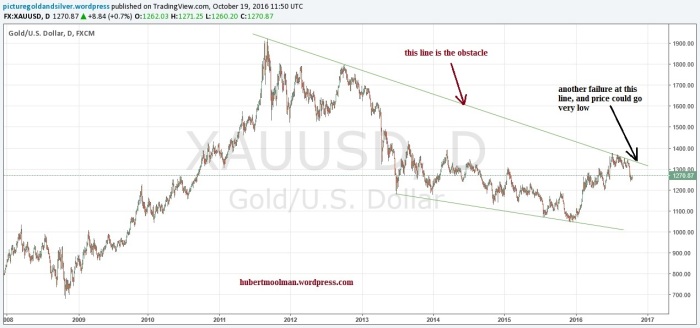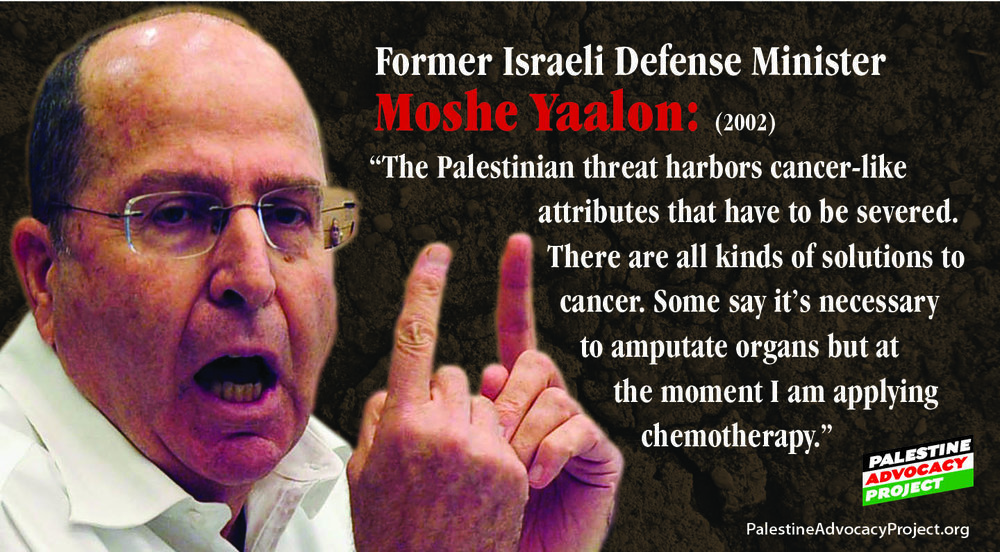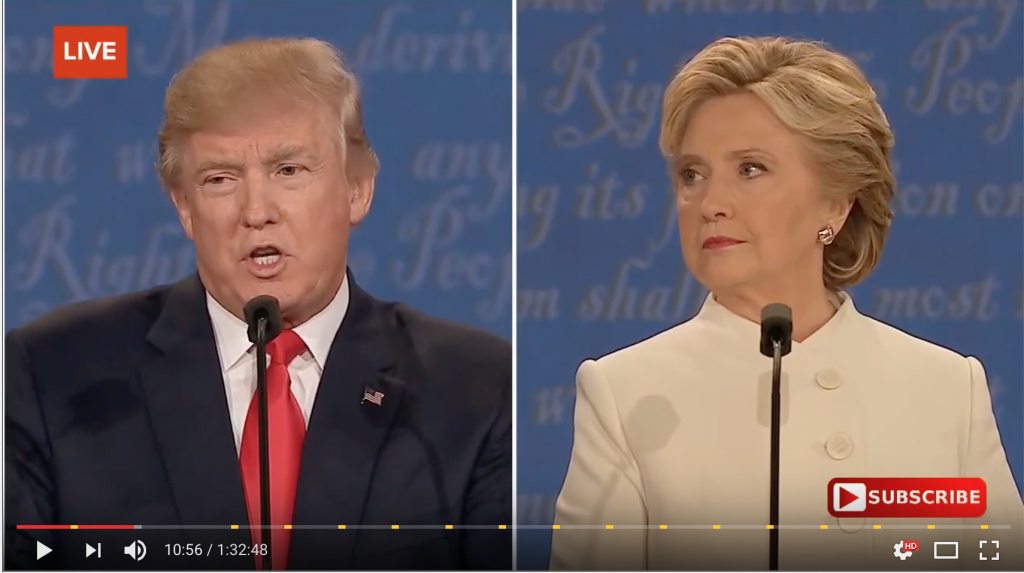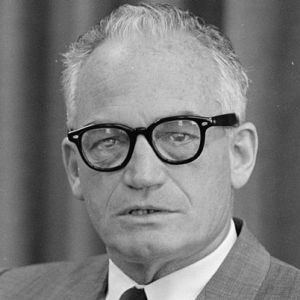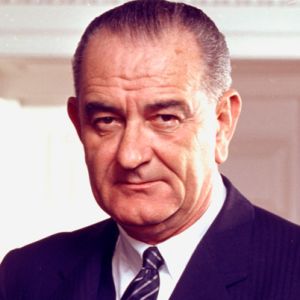A heroin epidemic is on fire all across America. Heroin deaths shot up from 1,779 in 2001 to 10,574 in 2014 as Afghan opium poppy fields metastasized from 7,600 hectares in 2001 (when the War in Afghanistan began) to 224,000 hectares currently.
The Taliban outlawed opium in Afghanistan in 2000 and within a year it was all but gone, demonstrating that Afghan opium can be eradicated quickly for any administration that chooses to do so. Afghanistan is, by far, the number one source globally of both opium and heroin.
In 2014, 7,554 tons of raw opium were produced worldwide, including 6,400 tons in US-occupied Afghanistan and 173 tons from Mexico and Colombia. Opium plus chemicals (like acetic anhydride) produce heroin. US-occupied Afghanistan produces 85% of the world’s heroin. Mexico and Colombia produce only 2% of the world’s heroin. Mexico and Colombia produce enough heroin for only 115,000 heroin addicts.
Other countries such as Myanmar, Laos and Vietnam produce the remaining 13% of the world’s heroin. Heroin from Southeast Asian (Golden Triangle) countries go along heroin trade routes to other parts of Asia, Australia and Europe.
Most heroin in the US is coming from US-occupied Afghanistan. There is no other mathematical possibility. There is no other physical possibility.
There were 189,000 heroin users in the US in 2001, now there are 4,500,000 (2.5 million heroin addicts and 2 million casual users).
The heroin epidemic is big enough now for Congressional Hearings to be called. Congressional Hearings can be authorized by Chairs of various committees. Senator Johnson, Chair of the Homeland Security Committee, for example, can call hearings. There is no greater threat to national security at the moment than tons of Afghan heroin flooding into US each week, killing over 10,000 Americans a year.
Senator Grassley, Chair of the Judiciary Committee can also call hearings.
Basic questions can be asked like 1) how did Afghan opium spread from 7,600 hectares to 224,000 hectares, 2) why did US heroin deaths shoot up from 1,779 in 2001 to 10,574 in 2014, 3) how did the Taliban eradicate Afghan opium (from 93,000 hectares in 1999 to 7,600 hectares in 2001), 4) why hasn’t the current Administration done likewise, and 5) why did President Obama stop all US opium eradication efforts in US-occupied Afghanistan in 2009, effectively green lighting the Afghan opium and heroin trade.
I contacted all 535 US Congresspeople and several hundred opposition candidates to find out Congress’s take on this deadly epidemic.
Seven incumbents responded as did thirty-three opposition candidates. Answers varied from “close the CIA” to ‘beef up the border with Mexico’ to ‘decriminalize drugs’ to ‘more treatment’ to ‘eradicate Afghan opium crops.’
In a show of bipartisan unity not seen for a long time, the US Senate passed S.524, The Comprehensive Addiction and Recovery Act of 2016, by a vote of 94-1 in 2016. This bill proposes modest improvements in treatment and prevention efforts.
The corresponding bill in the US House of Representatives is still pending in the Judiciary Committee as is allocation of $725 million in funding for this bill.
Senator Ron Johnson (REP – WI) responded to inquiries with facts about work he has done as Chair of the Homeland Security and Government Oversight Committee to beef up border security to more effectively combat drug trafficking and on getting the Addiction and Recovery Act passed and funded.
Senator Johnson has also taken a lead in the fight against sex trafficking, a predicament many heroin users find themselves in, stating that “the degradation is sick.” Senator Johnson added amendments onto the Addiction and Recovery Act “aimed at helping Veterans, the Tribes in Wisconsin, and others.”
Former Senator Feingold (DEM – WI) declined to comment.
Heroin from Afghanistan has killed more people than the 55,000 Americans killed in the Vietnam War. An American now gets killed every 32 minutes by Afghan heroin. With US heroin deaths tripling every four years, an American will get killed by heroin every 16 minutes by 2020. Since 2009, American policy has been to permit Afghan opium growing and the heroin trade, to minimize US troop casualties in Afghanistan and to maximize US civilian heroin casualties here in the USA.
Senator John Cornyn (REP – TX) spoke candidly about how:
the abuse of heroin and prescription painkillers is devastating families and communities. The truth is, the problem is getting worse. Deaths due to heroin overdoses and prescription drug overdoses have even surpassed car accidents as the #1 cause of injury-related deaths nationwide. So it’s time for Congress to do something significant to begin to address this disturbing trend. This (Addiction and Recovery Act) bill is a good example of how Republicans and Democrats working on a bipartisan basis can zero-in on a problem that’s harming our nation and work together to address it, and I’m proud to cosponsor this legislation.
While this bill touches on how to battle drug addiction, we need to do more to cut the source of drugs off and to keep them from getting into our country in the first place. Unfortunately, even while the production and demand of these illegal drugs has been growing, we have simply not done enough to combat it.
Senator Cornyn:
introduced several amendments that would help focus our resources to interdict these shipments and to help stem the growing tide of illicit drugs entering the U.S. I’m glad that we are making some progress on this legislation. I’m optimistic that we will be able to complete it in a bipartisan fashion, which is the only way you get things done around here.
Senate Chuck Grassley (REP-IA), who marshaled the bipartisan Comprehensive Addiction and Recovery Act to final passage, stated:
The heroin and opioid epidemic is taking lives and shattering families in Iowa and across our country, so I’m grateful that my colleagues have come together to pass the Comprehensive Addiction and Recovery Act. This bill will help to combat the scourge that affects all walks of life through expanded access to life-saving overdose reversal drugs, increased prevention education, a renewed focus on addiction recovery. Fighting addiction is a bipartisan issue, and requires bipartisan consideration, which is why we included the viewpoints and amendments of many senators. The House of Representatives should now move swiftly to get this bill to the President’s desk so we can begin to provide relief for American families.
Senator Grassley added:
More than 120 Americans die each day from drug overdoses. The Addiction and Recovery Act would help to stem these tragedies by expanding law enforcement and first responders’ access to naloxone, a fast-acting medication that can reverse the deadly effects of opioid overdoses … to treat addiction and assist in recovery, the bill launches an evidence-based opioid and heroin treatment and intervention program to expand the use of best practices nationwide. It also establishes a medication assisted treatment demonstration program, and helps to identify and treat non-violent individuals struggling with addiction who encounter the criminal justice system.
Senator Grassley (REP-IA), Chairman of the Judiciary Committee and the Caucus on International Narcotics Control and Senator Feinstein (DEM-CA), Co-Chair of the Caucus on International Narcotics Control, both praised Senate passage of their Fight Transnational Drug Trafficking bill. The US Senate passed the bill in Fall 2015 by unanimous consent.
“Since drug cartels are continually evolving, this legislation ensures that our criminal laws keep pace,” said Grassley, adding “the bill closes a loophole abused by drug traffickers who intend for drugs to end up in the United States, but supply them through an intermediary. The Justice Department needs every legal tool to help crack down on those who ship these substances into our country.”
“International drug traffickers continue to find new ways to circumvent our laws,” said Feinstein “to reduce the flow of drugs into the US, the federal government needs the legal authority to aggressively pursue transnational criminal organizations and drug kingpins in any country. This bill gives law enforcement the authority they need to go after these criminals.”
Senators Johnson and Grassley have not yet responded to a follow up inquiry asking when their Committees will hold hearings about the surge of Afghan opium since opium growing was permitted by American policy in 2009, leading to an increase to 224,000 Afghan opium hectares, simultaneous with the surge in American heroin deaths from 3,036 in 2010 to 10,574 in 2014 and the surge in heroin users from 189,000 Americans in 2001 to 4,500,000 Americans in 2015, how all that Afghan heroin is getting to US, what (if anything) Congress will do about the role of people working for the federal government in trafficking heroin, what can be done about it, how the Taliban eliminated opium growing in Afghanistan within a year (mid-2000 to mid-2001) and why hasn’t the current Administration done likewise.
“Close the CIA” was one of the first responses I got from an opposition candidate, Scott Jameson, a Libertarian Congressional candidate in Texas’s 3rd Congressional District (CD). In a previous election, Mr. Jameson earned 20.9% of the vote in a State Senate campaign.
Chris Aguayo, Veteran’s Party candidate for US Senate in Illinois, stated:
First, we as a country need to accept the fact that we have a growing epidemic. We also have to be honest about how the drugs are actually making it into the country past customs. We have to hold those in charge and involved accountable. So how do we do that? We already know that the CIA and DEA are involved. We also know that the CIA uses Mexican cartels to funnel drugs into the US. The CIA involvement with cartels isn’t new knowledge. When elected I will push for legislation to end the CIA involvement with cartels and terrorist organizations. I would also push to have the Afghanistan government outlaw opium like they did in the past. We have to stop the issue at the source. When I say that I am going to put a target on my back for my constituents and take a stand for them in Washington DC I mean ever word.
Second, I firmly believe communities need more resources to help those with addictions. I’m appalled at how many mental health treatment facilities have been shut down. This has forced an over-growth in our prison systems without the proper treatment for those in need. The big question is where is that funding going to come from? How are we going to pay for it without raising taxes? We need the State of Illinois to pass a balanced and Constitutional budget. We need to look into cutting funding for unnecessary programs. We also need to provide law enforcement with the tools necessary to find drug smugglers and dealers providing the heroin on the streets of our cities. Community leaders and their communities need to come together to find possible solutions as well. Ending this epidemic will take the combined effort of the federal government, states, and local communities.
Mike Kolls, a Libertarian candidate in Texas implored that:
Government should not act to supply currently illegal drugs, or anything else. Government officials and other influential people should not personally benefit financially from government action. Private organizations and concerned citizens should provide recovery programs, provide necessary assistance to the addicted, and distribute informational materials. Parents and guardians should teach their values to the children. Each person must then choose.
Mr. Kolls added if indeed government officials are proven to be part of the international drug trade then “stop its operations and involvement, force officials and their friends who benefited to give back their ill-gotten booty, seek felony charges and damages from officials whose action directly caused a death or a disabling medical condition and give the sovereign states the regurgitated booty for recovery programs, assistance and public service announcements.”
Billy Hart, a candidate in the Texas Republican Primary election for Congressional candidates, declared:
I am fully aware that the U.S. Government is behind drug trafficking via big pharma companies that elected politicians own stock in. With opiates being purchased worldwide by publicly traded companies in which elected officials are invested in; seemingly the only time there is a war on drugs is when elected officials are not profiting off of it. My opponent (Congressman) Will Hurd is a backbone in this corruption and this activity is the reason I am running against him.
Mr. Hart added that:
Under Oath, former Secretary State Clinton did admit that ISIS was created by the CIA; and knowing Hurd was in Afghanistan, he (epitomizes) the reason we have a war on terror. This is not a party issue to me being that with peace, elected officials cannot profit off of their invested stock in Dept. of Defense funded companies. Our own Democratic Secretary of State Kerry is the largest profiteer off of war earning hundreds of millions of dollars off of seeding international conflict via the CIA, then selling weapons and soldiers overseas as bullet sponges in the name of terror … every one of our elected politicians is driven by the greed of money and corruption.
In conclusion, Mr. Hart described his candidacy against Congressman Hurd (a self-described former CIA operative in Afghanistan) as “a David and Goliath story considering my opponent is sitting on over a million dollars in special interest campaign funds.”
Michael Coblenz, a Democrat campaigning for Congress in Kentucky cited “the increased use of heroin is due to authorities limiting prescriptions of opioid painkillers. So addicts have turned to heroin.” Mr. Coblenz added “drug use tends to increase as the economy sours and that price of heroin has decreased dramatically.”
Mr. Coblenz, if elected, would “improve the economy. The recent recovery has been very uneven across the country and some areas have barely recovered. Invest in improving our crumbling infrastructure as one way to pump money into the economy” and he added “increase drug treatment, treat users as people with a problem and not as criminals. Obviously some are and should be treated as such, but the vast majority are not and should not have their future destroyed with a criminal conviction or prison sentence.”
Mr. Coblenz concluded “improve border control, improve the economic conditions of those regions of the country that produce heroin, allow farmers to return to growing other crops. I would certainly do what I could to examine allegations (of government involvement in the heroin trade) and if true to stop this behavior.”
Geoff Young, another Democratic candidate in Kentucky’s 6th District stated:
America’s military-industrial complex needs to be reduced significantly. Fund infrastructure, not useless weapons. 50% of our military and “intelligence” budgets could be carefully cut in such a way that our nation’s security would actually improve. We would then be able to afford investments in infrastructure, health care, and education that would benefit all Americans.
Mr. Young added:
It’s possible that I would propose cuts of more than 50% in the annual secret budgets of the CIA and NSA. I believe that such cuts would reduce the supply of heroin being produced in Afghanistan and would improve our national security and the stability of our financial system. I would also demand the immediate and permanent withdrawal of all US troops and CIA agents in Afghanistan.
Matt Maxwell, a Republican candidate in Connecticut stated “corruption is at the heart of it. We must root out those entities that facilitate the status quo.” Mr. Maxwell added that he has had “a number of friends who died from overdosing.”
Bob Fitrakis, Green Party candidate for Franklin County, Ohio Public Prosecutor said:
It is a well established fact that the CIA has long allowed narcotics trafficking among US allies in order to finance so-called covert operations. The massive flow of opium which is processed into heroin is a direct result of the US military, the CIA and covert operations being stationed in Afghanistan. This is the famed “Golden Crescent.” As Professor McCoy established in “The Politics of Heroin in Southeast Asia” the CIA did the same thing during the Vietnam War in Laos. It’s well documented that there was a long-standing agreement between the OSS-CIA and the Mafia to look the other way on organized crime narcotics running into the US. This was done in exchange for intelligence concerning espionage on US docks, information on the invasion of Sicily in WWII and cooperation against the Soviets during the Cold War.
The so-called French Connection was another obvious example of the CIA allowing the Corsican Brotherhood to traffic heroin into New York City in exchange for aiding CIA activities against Communists in France.
The first thing we need to do to stop heroin trafficking is to invest in scanning all cargo coming into the US, particularly by air and ship. Estimates are as low as only 3% of the custom sealed containers being scanned. We clearly need to search all flights coming into military bases like Rickenbacker here in Columbus.
We need to revoke the CIA’s de facto license to be the Cocaine-Importing Agency. Any commercial fronts be they textile companies or fruit importers that are involved in bulk trafficking of heroin need to have their assets confiscated.
I would end all prosecution for personal possession of narcotics and move resources away from street level dealers and focus all resources on the major distributors flooding our streets with heroin. I would use the criminal justice system to assist in getting treatment for those addicted who will accept treatment.
Bob is an attorney, a college professor, a journalist and a superhero crime fighter.
Darryl Cherney, a Green Party primary candidate for President, had this to say:
The war in Afghanistan is a continuation of the opium wars commenced by the British and US back in the 1800’s and continuing on right through World War 2 and Vietnam. Franklin Delano Roosevelt’s father, William Delano, was an opium trader as was Robert Forbes. The Taliban came down on the opium trade (in 2000). This could have been one of the many reasons to restart warfare in the land known as “The Graveyard of Empires.”
Afghanistan has had the name Graveyard of the Empires from the time Alexander the Great’s empire was ended there long ago through the ending of the Soviet empire in 1991 to present. One way or another the Afghani people figure out how to destroy empires that have attacked them.
Mr. Cherney, a Fordham University graduate (as is CIA Director John Brennan), added:
We know that nations throughout history have funneled drugs into civilizations they want to conquer, such as our nation’s supplying tribes with alcohol and the aforementioned opium into China by the British, primarily. It’s a tactic of warfare. Which brings us to what I call “the war on people” in this country.
While I (Cherney) fully believe the articles uncovering drug funneling into communities across our nation, I have also seen it first hand. I’ve watched first-hand the cops stop a meth or heroin dealer and then let them go, only to watch one deal to a 10 year old five minutes later. I watched our local DA in Eureka, CA release on no bail an undocumented foreign national who was caught with 2 pounds of methamphetamine, never to be seen again. I see the cops and military occasionally get caught with large quantities of these hard drugs in their possession. In other words, law enforcement allows these drugs into our community and even becomes part of the problem. It serves the powerful to have the middle class terrified by the drug addicted class, which I do see as becoming their own class.
The prison industrial state compliments this nightmare. People coming out of prison destitute with no job possibilities, leaving behind families with the same plight, are more likely to turn to substance abuse and dealing. Pardoning all non-violent drug offenders is in my purview. Working to end unnecessary sentencing will assist as well. It’s a holistic approach.”
Cherney then added:
The culture of corruption and the money involved is colossal, with the banks playing roles laundering money for the cartels. Dismantling and rebuilding the DEA might be in order. Border checks are important, but many hard drugs are made in the USA, one of the last things we actually make here, besides weaponry. Delisting cannabis will be necessary, because falsely labeling it as a Schedule I dangerous drug contributes to the cartels and even small time dealer’s profit margins. Drug rehabilitation and education is a start. There’s no discernible media campaign to address this epidemic. It’s one easy place to start – taking out television, radio, internet and print ads, as well as billboards and posters. Before and after pictures of addicts, I believe, could be helpful. We won’t know until we try.
What I (Cherney) do know is that the streets of towns large and small are filled with the “walking dead,” people who have essentially lost their souls or at least their personalities, not to mention their health, to meth and heroin. Crime and violence that accompanies that, are making even small town America, where you used to not need to lock your car or your doors, more dangerous. Ending these wars is key. We fight some of them, in part, to keep the opium trade going.
David (Dew) Williams III, an Independent Congressional candidate in Illinois’s 9th District had this to say:
It’s becoming common knowledge that drugs such as heroin magically do not appear on U.S. soil, or just because of the Mexican drug cartels and Islamic terrorist cells. The CIA in the past have been caught in purposely allowing the drugs into Black communities such as in Los Angeles in the early 1990s to continue their cycle of incarceration for the prison industrial complex. I feel that as Americans, we need to hold our government accountable for their corrupt actions from the local to federal level – from investigations to prosecuting those involved in such illegal activities that are ruining our moral structure.
Mr. Williams, a Veteran, added:
We have enough laws as it is when it comes to heroin. People will still find ways to break those laws. I feel we as a nation should take a holistic approach by caring for those with over coming such bad habits. Rehabilitation and education is the key to defeat this heroin epidemic, while we’re at it, I firmly believe it starts at home too. Parenting needs to be stronger, and the parents speaking to their children about the real world is a start.
Sean Jackson, a Republican candidate in Maryland’s 1st Congressional District, is both a Veteran and a Police Officer. Mr. Jackson stated:
“I would address the heroin drug war as a “health issue” that is plaguing Americans and a “national security issue”:
Domestically – The U.S. spends billions of dollars each year combating illegal drugs. We need to concentrate our drug prevention efforts on poisonous illegal drugs (e.g. heroin, meth, etc.) that destroy the body (resulting in overdose deaths), tied to the increase in crime (robberies, thefts, etc. … desperation to seek money for withdrawal needs) and devastates families and communities. As long as there is a demand for heroin, drug cartels (some with ties to governments and/or terrorist organizations) will supply. The U.S. needs to re-focus our war on drugs. The legalization of marijuana is a start. The U.S. will never stop the insatiable demand for marijuana. The U.S. can address the issue as fiscal benefit by regulation and taxation of marijuana. The taxation proceeds can be earmarked directly towards health education and treatment programs dealing with heroin. All forms of governments are woefully inept to combat the heroin epidemic. According to health reports, once an individual becomes a heroin addict, only 3% are successful at recovery. During recovery, the addict will spend the rest of their life in turmoil to avoid recidivism.
National Security/International Involvement – Afghanistan is the largest producer of heroin in the world. The U.S. can not take on this battle alone. IF, the World (including the U.S.) is truly serious about combating heroin, they need to convene and strategize a unified military effort (to include economic sanctions) to permanently destroy those organizations/governments/countries that condone the manufacturing/distribution of this poison for financial gain and ultimately the self-destruction of western society. The unified front should include U.S. allies in the region (Israel & India) that book-end the Middle East to stem the distribution routes out of the region.
The U.S. (with its Allies) may need to consider a military invasion or military strikes against Mexican drug cartels that are strategically and safely positioned along the U.S./Mexico. According to intel, the cartels have concentrated their efforts in producing heroin and meth (rather than marijuana) due to the increased profit margin and user demand.”
Many opposition candidates, such as Mr. Jackson, had the most detailed and insightful (proposed) solutions to the problem.
Johnny Slavens, a Republican candidate in Texas said:
The only chance we really have to beat things like this is to inspire people to believe in something bigger than themselves. Our founding fathers called that God and so do I.
Mr. Slavens added:
We also need to secure our border. The federal government has a constitutional obligation to secure our border of which they are dramatically failing. Career politicians don’t care about securing the border. The Democrats see it as votes and the Republicans see it as cheap labor (i.e. crony capitalism). The drug trafficking, human trafficking, sex trafficking, the threat to our national security, we must secure the border as our highest priority.
Chris Mason, a Republican candidate in Maryland and a Veteran declared “we simply need to secure our borders and all these problems are solved.” Simon Winston, a Republican candidate in Texas’s 1st District, echoed “that a more secure border would be a good step in the right direction.”
Darrel Smith, Jr., the Green Party candidate in Texas’s 6th District stated:
We should be focusing on rehabilitation programs with proven track records and expand them. We should look at local programs like Los Angeles County’s Substance Abuse Prevention and Control and the Massachusetts Opioid Abuse Prevention Collaborative, and implement their successes nationwide while also understanding and modifying those programs to work with specific communities.
Joe Demare, Green Party candidate for US Senate in Ohio, said “heroin sucks” and added two points:
First, massive increases in addiction treatment, drug abuse prevention, and education funding and second, follow the strategy put forward by Bob Fitrakis, Green Party candidate for Franklin County Prosecutor. He points out that in most cases, the identity of the largest regional heroin importers are known to authorities. However, they are not pursued for prosecution because of fear. I would support prosecutions and work to ensure that there is enough federal support to protect our judges and law enforcement officials pursuing heroin importers.
A former Congressional Staffer, who is not campaigning for public office, and who did not want to be identified for this article, stated that “it’s an open secret on the Hill that the CIA prompted the spread of narcotics in Afghanistan and is flying it into the USA. They made Afghanistan a narco state. It’s killing Americans in droves, no doubt. It’s just, most everyone on the Hill is too afraid of the CIA to do much of anything about it.”
Ed Rankin, a Texas Libertarian candidate (32nd CD) began:
The system is totally corrupt. It’s indeed interesting that opium production has risen so dramatically in Afghanistan following the US invasion isn’t it?
He then added:
First, in order to address the drug addiction problem, we need to stop the drug war and begin to treat addiction as a social problem and not a criminal one. If we’re going to seriously continue the drug war, then we should prosecute executives of the banks laundering the drug money not simply fine the institutions a relatively paltry amount. Longer term, stopping US military interventionism is the key to addressing many of our domestic and international problems. The trillions of dollars wasted on our wars in Afghanistan and Iraq could certainly be used to address issues like drug addiction at home. I’d introduce legislation repealing all federal drug laws. That would eliminated drug laundering. Prohibition has never worked. Legalize drugs and it all goes away.
Ruben Corvalan, another Texas Libertarian candidate (23rd CD) echoed Mr. Rankin, stating:
I would legalize all drugs, including heroin, cocaine, marijuana, etc.
Then he added:
Once legalized, we can control it, tax it, and distribute it in approved retailers. The money collected in purchase taxes would be used in an aggressive educational campaign (similar to cigarettes). Americans are adults, they should be responsible for their actions. The government is not and should not be the caretakers of adults. Adults should have the dignity of free choice. Free choice comes with a price. The price of freedom is responsibility and accountability.
Dorian Myrickes, a Democratic Party candidate in Illinois (2nd CD) advocates legalization. Mr. Myrickes stated:
The reality of the drug industry in America is that it provides thousands of jobs through law enforcement, social services, and rehabilitation programs, unfortunately. These drugs destroy our communities and America has never had a true plan on the war of drugs. It is disheartening to think America may never have a divisive plan on the war on drugs. Until legislators come with real sensible bills and laws, sentencing drug transporters, and rehabilitation for heroin users, the problem will remain. People are going to consume, transport and sell drugs regardless of laws, bills, etc. The heroin epidemic is not new. Alcohol, cocaine, lottery, and marijuana at one point were all illegal vices. I say educate, legalize and tax drugs, this will remove the mystique of any illegal activity and perhaps close the gap on America’s debt ceiling. Distributors, facilities and customers should pay a premium tax of 35% on drugs. Those tax funds could be utilized to rejuvenate the proper monetary disbursements and reopen hospitals, rehab’s and educational facilities.
Dominique Michelle Garcia, a Democratic candidate in Texas (29th CD) said:
Drug use and abuse is a mental illness. As a society we need to stop treating the symptoms and start nipping at the cause. Our current method of declaring war on everything is flawed and outdated. We are treating people who are victims as if they are criminals. We need to decriminalize drugs and use the money for treatment.
Jeff Kender, a Democratic candidate for US Senate in Kentucky, stated “First it needs to be stopped at its core. Rehabilitation to help users, who are non-violent.”
Calvin Sidle, a Democratic candidate in Kentucky (4th CD), stated:
The heroin epidemic is one of the biggest challenges facing this area. We absolutely must put a stop to any imports of heroin, regardless of the source. We must step up efforts to limit supply at the same time as we learn new strategies to curb demand. We need to make a stronger push for medically-assisted treatment to help those people who are caught in a deadly cycle of addiction.
Joe Sestak, a former Congressman, Admiral, Anti-Terrorism Director and currently in a tight re-match with Senator Toomey in Pennsylvania referred me to his ‘opiate contrast’ pdf file. Sestak supports R & D for a new generation of non-addictive painkillers, drug courts which send non-violent users to rehab, V.A. funding for substance abuse programs, requiring all health insurance to cover substance abuse recovery programs, more prevention efforts and a greater availability of treatment for drug users. Senator Toomey’s record shows he voted against V.A. budgets, against drug courts, against more prevention and against more treatment.
Sestak prefaced his statements with a heartfelt acknowledgment that ‘1 of every 4 families has a loved one suffering from addiction and that the opiate epidemic touches all types of communities, large and small, rich and poor.’
Senator Toomey (REP-PA) declined to comment for this article.
Sestak did not reply to follow up emails asking what, if elected, he would do about the source of most heroin, US-occupied Afghanistan.
Bill Fraser, an Independent candidate in Illinois (8th CD) is campaigning on a platform of Swiss style direct democracy so voters can vote directly on issues and spending. Mr. Fraser, a high school teacher, stated “the constituency would be called upon to vote on all legislation and I would vote the way the majority wants me to vote.”
Direct voting on legislation and spending or at least nationwide ballot referendums would be a giant leap forward towards democracy in the USA. In international rankings, the USA currently ranks #62 for democracy and #49 for freedom of the press.
Andrew Straw, an attorney and Republican candidate in Illinois (8th CD) stated:
Afghanistan has always grown poppies. We must think about the other uses for this substance besides heroin, which is a scourge, despite the fact that President Obama admitted using it in his autobiography.
Mr. Straw added:
My brother was a critical care trauma nurse and he served in Afghanistan. He patched together and saved the lives of our soldiers who were blown up and amputees. They used a lot of morphine.
Mr. Straw concluded:
There is a worldwide shortage of morphine. Morphine is made from opium. The world community should be buying the opium and using it to create morphine. Morphine is a very important drug needed in every country, every community, every hospital. While the United States has a presence in Afghanistan, it needs to regulate the opium and purchase it for use in making vital pharmaceutical drugs, there is no reason the opium has to turn into heroin illegally or destroyed. It has other, legitimate uses.
An opium crop buying program may be a win win situation, although it might also spark bidding wars for raw opium and higher prices leading to an even greater expansion of Afghan opium crops.
Rob Shaver, a Republican Congressional candidate in New York and a Veteran, stated:
I feel NY State is entirely at the crossroads of devastation in our rural area’s to inner cities from this epidemic. Worse then crack cocaine was in the 1980s and early 1990s. Children and adults are loosing their lives both in reality and figuratively by the addictions they face from the first time shooting up.
Mr. Shaver added “to the victims, I do believe they are victims from a weakened border and policy we allowed for decades now.” Mr. Shaver mentioned “the dark world of funding off book operations” and elaborated “it’s been around for a long while as we the USA been the main drug trafficker for decades to fund National Security operations and other agendas we the people wouldn’t understand in their minds.”
If elected, Mr. Shaver would:
Create bills that amend or repeal current international drug enforcement statues to put pressure on the US government to stop this destruction to our citizens. Most of the tribal leaders and members of Afghan Parliament are in on the illegal sale of opium so we have corruption to deal with as the first task. The US Congress needs to do some reform on our foreign appropriations spending and the Executive branch with Secretary of State and Secretary of Defense focusing on the stop of distribution with the current Minister of Interior and President Mohammad Ashraf Ghani and his executive branch members of justice in joint task force we have trained and jointly funded now for a decade. DEA and ATF has been tasked with this for years now making small dents, but not enough to stop the sale of heroin in the western world. The Bureau of International Narcotics and Law Enforcement Affairs who oversees this work will again be on the new POTUS and Executive Branch to propose appropriations and Congress to approve the funding that warrants stronger US Border enforcement and trafficking that many politicians do not want to support. Case in point Senator Kristen Gillibrand (NY) when Congresswoman supported stronger borders and now as US Senator has flip flopped under Senator Chuck Schumer and her DNC associates to vote against Sen McCain’s amendment to H.R. 4899, the 2010 Emergency Supplemental bill to send National Guard troops to add more Right of Entry guards into Arizona to stop drug trafficking levels that were scorching our southwestern front.
Mr. Shaver concluded by stating:
New York State and the Department of Justice needs to be proactive with more ear marked funding to develop county task forces with both State and Federal support to not only make arrest and prosecutions but treatment faculties and half-way homes with vocational training to get all victims of this drug back into society with our support.
Dr. Donald May, a former Air Force Major and Republican primary candidate in Texas (19th CD) highlighted the Democratic Party’s role for entry into war after the September 11th terrorist attacks. Dr. May began by stating:
Due to Obama, the U.S troops have no control over much of anything in Afghanistan, our border is wide open to anything and everything, guns have been supplied to the Mexican drug criminals, and drug dealers plead down their cases and go free. You really need to blame the evilDemocrats for starting the rumors that led to the invasion of Iraq. The Democrats claimed that Saddam Hussein had weapons of mass destruction (WMD’s) and a nuclear weapons program. It was Bill Clinton who repeatedly warned George W. Bush of Saddam’s WMDs.
Dr. May then supplied 16 quotes from Democratic Party officials such as Hillary Clinton, John Kerry, Madeline Albright, Sandy Berger, Nancy Pelosi, Al Gore, Ted Kennedy, Henry Waxman, Jay Rockefeller, Robert Byrd and others.
For example, Dr. May stated that then Senator Hillary Clinton (DEM-NY) said on October 10, 2002:
In the four years since the inspectors left, intelligence reports show that Saddam Hussein has worked to rebuild his chemical and biological weapons stock, his missile delivery capability, and his nuclear program. He has also given aid, comfort, and sanctuary to terrorists, including al Qaeda members. It is clear, however, that if left unchecked, Saddam Hussein will continue to increase his capacity to wage biological and chemical warfare, and will keep trying to develop nuclear weapons.
The reasons for entry into wars, the lingering 15+ year occupation of Afghanistan and the flood of Afghan heroin devastating America all have roots that need to be better investigated and reported on.
99% of incumbents and close to 95% of opposition candidates contacted did not respond to inquiries.
A few incumbents, 1%, did reply, but refused to answer any questions about the heroin epidemic, the devastation being caused by the epidemic or about Afghanistan.
Sam Carpenter’s campaign for Senate in Oregon replied a few times to ask which outlet the report would be published in and if Senator Wyden (DEM-OR) had responded, but he refused to answer any questions about Afghanistan or the heroin epidemic.
vog.etanes.nedyw@nedyw_rotanes (email not signed) responded on March 1, 2016 “You will be receiving a more detailed response via email in the near future.” That was months ago and a detailed response via email has not been sent. I followed up with both of these Senate candidates, but they didn’t respond. Neither appeared to have any sense of urgency regarding the heroin epidemic killing an American every 32 minutes.
Congressman Lee Zeldin’s Press Secretary replied to ask about the article’s deadline. I replied then never heard back again. I followed up several times, but there was no further response from anyone in Zeldin’s office to questions about the heroin epidemic or the explosive spread of Afghan opium since 2001 simultaneous with the mushrooming increase in US heroin fatalities from 1,779 in 2001 to 3,036 in 2010 to 10,574 in 2014.
Zeffin Hardin, a Republican candidate in Texas (28th CD), emailed a couple times to state he would not be commenting or answering any questions about the heroin crisis.
Many of these candidates, incumbents and non-incumbents alike, might as well have auto-replied “let them eat cake” because that’s how many of their non-responses seemed.
The House can vote this week, if they care to, to pass HR953, the companion bill to S.524 to make a baby step forward of more treatment possible. Amy Bos in Congressman Senserbreener’s Office stated that “the bill is still pending in multiple committees. We’ve been told the bill is a priority for leadership but have been given no indication on timing for a vote.”
Current treatment cannot provide for even 1/8th of the surge in drug abusers. If both the Senate and House bills were passed and funded, they would not provide enough for even 3% of current need.
$25 billion, however, would construct 100,000 new in-patient treatment beds and $10 billion annually would provide another 1,000,000 seats in out-patient treatment. $35 billion is needed immediately for treatment. The opiate problem has gotten that big in the USA since the invasion of Afghanistan in 2001.
The Senate and House bills both call for less than $1 billion in funding.
Congress can also call Congressional hearings into how Afghan opium fields have spread from 7,600 hectares to 224,000 hectares as US heroin deaths shot up from 1,779 in 2001 to 3,036 in 2010 to 10,574 in 2014.
Why is it that the Taliban administration in 2000 outlawed opium and within a year it was all but gone (from 93,000 hectares in 1999 to 7,600 hectares in 2001) and why exactly has the current administration not done that too? What have different agencies (e.g. DEA, FBI, CIA, DoD) been doing in Afghanistan since 2001? The AOK’ing for Afghans to grow opium and the transporting of Afghan heroin into the US “green lighted” in 2009 was for what exactly?
I contacted the DEA several times in Spring 2016, for answers about how Afghan opium metastasized to 224,000 hectares, what has the DEA been doing since 2001, why have American heroin deaths mushroomed to 10,574 a year and continue to spiral up out of control? What arrangements does the DEA have with the CIA regarding CIA agents (officers, contractors, etc.) dealing drugs? What has been done since 2001 to interdict acetic anhydride into Afghanistan?
Barbara Carreno and Russell Baer, who has top secret clearance, dodged most of my questions, but did answer a few questions about acetic anhydride stating that was the job of Afghanistan’s government to deal with.
Mexico with 10,500 hectares of opium could not possibly supply even 1/20th of the heroin demand in the US. What has the DEA been doing about the vast majority of heroin which is coming in from Afghanistan?
Congresspeople can demand the various agencies come clean and tell all about Afghan heroin, 2001 to present.
Harold Pfleiderer at the Royal Canadian Mounted Police stated that 90% of the heroin in Canada comes from Afghanistan.
Barbara and Russell at the DEA claimed, incredibly, that only 4% of the heroin in the US is from Afghanistan and they refused to answer any questions about why they claim most heroin is coming from Mexico since Mexico cannot produce enough heroin for 1/20th of the US heroin demand. Every opium producing nation on Earth, except Afghanistan, cannot produce enough heroin for even 1/2 of the heroin demand in the USA.
Barbara and Russell refused to answer most questions. Barbara and Russell at the DEA emailed on April 1st, 2016:
Unfortunately, we are a small press office with many queries to answer, and your line of questioning is expanding. I’m sorry to have to say that we will not able to assist you further on these stories.
Is the heroin epidemic, which is killing over 10,000 Americans a year, an April Fools Day joke to these DEA people?
Looking at facts and figures regarding the heroin epidemic, it becomes obvious that the DEA has been a colossal failure and they refuse to answer most questions asked of them. Perhaps, the DEA would answer questions (or plead the 5th) at Congressional Hearings.
Since Afghan opium spread to 224,000 hectares in 2014, since heroin deaths in the US shot up to 10,574 in 2014, several narratives have been rolled out to try to draw attention away from where most heroin comes from (US-occupied Afghanistan) and how most of that heroin gets to US.
First, ‘the Mexicans did it” which is to say that the 173 tons of raw opium from Latin America (from 10,500 hectares in Mexico and 1,500 hectares in Colombia) were converted into 17.3 tons of heroin and all 17.3 tons were imported into the US, where it would not supply even 5% of the US heroin demand.
If all countries on Earth growing opium, except Afghanistan, were to convert their opium to heroin and send it to the US, it wouldn’t be enough for even half of the current US heroin demand.
Most heroin in the US is coming from US-occupied Afghanistan. There is no other mathematical possibility possible. There is no other physical possibility possible.
Second, ‘Myanmar did it’. Myanmar does grow 50,000 hectares of opium, not even 1/4th of what Afghanistan does. Myanmar heroin could not provide even half of the US heroin demand and most heroin from Myanmar is known (e.g. by the UN) to travel heroin trade routes to Europe, Asia and Australia.
Thirdly, ‘Fentanyl did it’. Fentanyl accounts for less than 15% of total opioid deaths in the US. The heroin epidemic is not due to Fentanyl. The heroin epidemic is due to heroin.
Fourthly, ‘doctors did it’. Doctors prescribe painkillers then patients ramp up to heroin. Only 3.6% of people who abuse prescription painkillers then go on to heroin. Doctors prescribing painkillers did not cause the heroin epidemic. The flood of Afghan heroin since 2001 has caused the heroin epidemic.
Fifthly, the false claim that there are only 250,000 heroin users in the USA so back to 1) ‘the Mexicans did it’. (If there were only 250,000 US heroin addicts, then Mexico’s puny 10,500 hectares of opium still couldn’t provide most of the heroin demand in the US.)
There are many more American heroin addicts than 250,000. The White House stated there were 1,500,000 heroin addicts in the US in 2010. That figure has shot up since 2010, to 2,500,000 regular heroin users currently plus another 2 million casual users.
Mexico cannot supply even 1/20th of the heroin demand in the US. All nations on Earth that grow opium combined, except Afghanistan, could not physically provide even half of the heroin used in the US. Only Afghanistan grows enough opium to provide the current US demand for heroin.
And only eradication of Afghan opium crops will stop the heroin epidemic. The Taliban outlawed opium in 2000 and within a year it was all but gone, so we know that eradication of Afghan opium is totally doable within a year.
Before writing this article, I hadn’t gotten “no comments” by email before. I’ve gotten “no comments” in person. I’ve gotten “no comments” on the phone. But, not by email. Usually, when someone doesn’t want to comment, by email, they simply ignore the email (i.e. about 99% of incumbents and 95% of opposition candidates).
On March 14th, I got an email from David Nunes (DEM-CA), the Chair of the House Intelligence Committee stating: “I’m sorry, we have no comment on this one.”
The following day, March 15th, came this email from Brad Wenstrup (REP-OH) in one of the states hardest hit by the heroin epidemic, Ohio: “Thank you for your email. Congressman Wenstrup does not have a comment at this time.”
With an American getting killed every 32 minutes by heroin, when will the Members of House Intelligence Committee feel like responding to this highly lethal epidemic of Afghan heroin flooding into the USA?
What can be done about the heroin epidemic? Eradicate Afghan opium as the Taliban administration did in 2000-2001, search US government (and US government chartered) planes and ships, ban precursor chemicals to make heroin, buy crops not yet eradicated (then sell those crops to make medical morphine), hold Congressional hearings to find out how Afghan opium spread more than 25 fold since the US invasion in 2001 (from 7,600 hectares to 224,000 hectares), how it’s getting to US and why hasn’t eradication been done (as the Taliban did in 2000-2001), $25 billion for 100,000 more in-patient treatment beds, $10 billion a year for 1,000,000 more outpatient treatment slots, decriminalize personal possession and focus on the big dealers (i.e. dealers of Afghan heroin).
Without cutting off (i.e. eradicating) the source of most heroin, Afghan opium, the heroin epidemic will get worse to over 20,000 American heroin deaths a year, crime levels not experienced since the 1980’s (or worse), deadly infections (e.g. HIV, HCV) shooting up, way up, costing taxpayers an extra $25 billion a year or so (e.g. Medicaid, Medicare, Obamacare subsidies) to care for the increases in diseased people.
Congress needs to know where the heroin is coming from. Congress also needs to acknowledge where most of the heroin is coming from (i.e. US-occupied Afghanistan), how it is getting from US-occupied Afghanistan to US and they need to investigate (e.g. Congressional Hearings), then act in their capacity to do oversight, to adjust budgets and to legislate.
Senator Moynihan (DEM-NY) introduced a bill, in 1991 and again in 1995, to abolish the CIA and to give their tasks to the State Department.
The Taliban outlawed opium in Afghanistan in 2000 and within a year it was all but gone. Outlaw opium in Afghanistan just like the Taliban did in 2000 and within a year Afghan opium will be all but gone and the American heroin epidemic will be all but gone as well.
William Edstrom graduated from Columbia University in 2003 and has worked since as a scientist, educator and writer. He’s co-authored book chapters, journal reports (e.g. Nature, Journal of Biological Chemistry) and articles with independent media outlets like Counterpunch, Truth-Out, Pravda, Global Research and the Mott Haven Herald. Will was the Green Party candidate for US Congress in 2014 in New York’s 15th Congressional District. He’s also a member of the Educational Writers Association (EWA).





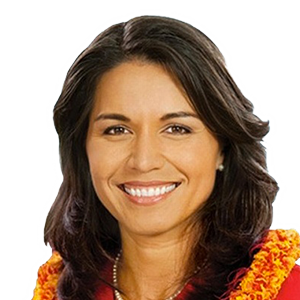


























 The just “rescued” kids sit quietly but completely unattended to in a brand-new €100,000 ambulance. No shock therapy was initiated, no Trendelberg position or at least laying down flat. No one talks to them despite half a dozen photographers being around them.
The just “rescued” kids sit quietly but completely unattended to in a brand-new €100,000 ambulance. No shock therapy was initiated, no Trendelberg position or at least laying down flat. No one talks to them despite half a dozen photographers being around them.










